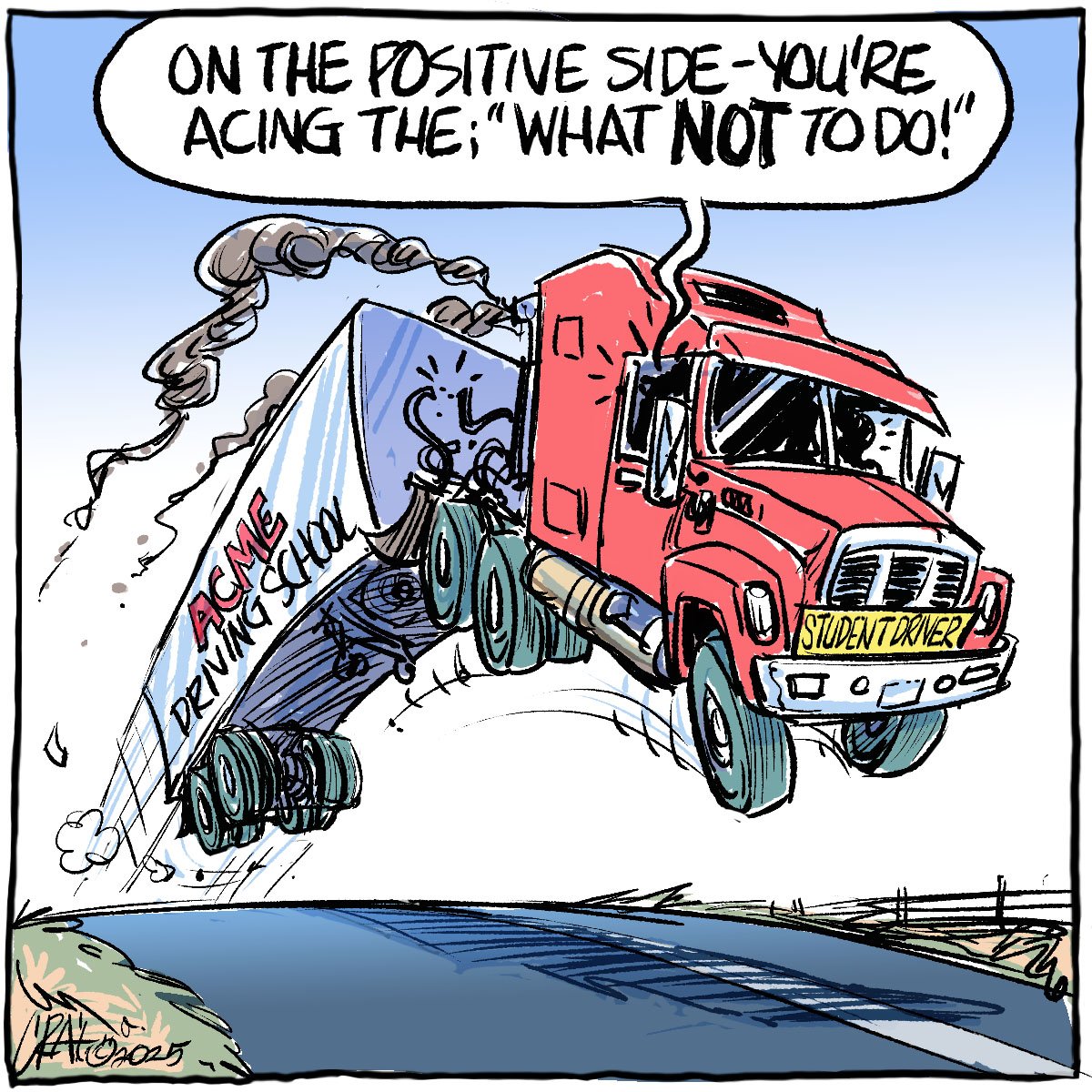I’VE BECOME increasingly suspicious of politicians who promise to lower taxes. Almost inevitably, people get hurt by tax cuts.
Sadly, I believe we may soon be facing higher taxes, no matter who wins the upcoming federal election. Or else many of us will be doing far worse than we are now, meaning lots of people will be hurt.
Taxes are determined by the moral and ethical values in a government’s economic policy. How a government raises and spends taxes is worthy of ethical reflection.
Canada has a huge national debt that needs to be paid off, just like ordinary peoples’ credit cards or car loans or mortgages.
Read Also

Efforts to improve trucking safety must be applauded
The tragedy of the Humboldt Broncos bus crash prompted calls for renewed efforts to improve safety in the trucking industry, including national mandatory standards.
While we shouldn’t be overwhelmed by the debt, we need to pay it off, not increase it.
One trouble spot is Canada’s commitment to fund our side of Afghanistan’s civil war until 2011. The Canadian Centre for Policy Alternatives reports that Canadian spending on the first six and a half years of the war cost us $7.2 billion. On average, that’s over $92 million per month.
That comes out of taxpayers’ pockets – yours and mine. But if the Harper government is going to lower taxes and keep up the war, where will it find the money?
When Mike Harris was Conservative premier of Ontario, he made deep cuts in taxes. He also made deep cuts in spending.
Among those who suffered most were disadvantaged people, the public school system and health care. This is noteworthy because key Stephen Harper advisers were prominent leaders in Ontario during Harris’ time.
Another part of the right-wing philosophy of tax cutters is reducing government services. Harris did that, and one outcome was the E. coli tragedy in Walkerton. Seven people died and hundreds got sick in 2000 because the water supply wasn’t monitored properly.
Prior to this year’s listeriosis outbreak, Harper’s government had opposed U.S. plans for tougher standards to prevent the possible spread of the disease into the United States.
Despite any promises, I very much doubt we’ll see significant tax cuts after the federal election. Or if we do, a lot of us will be less well off. Supporting someone who advocates deep tax cuts is risky.
On another matter, the debate over the leaders’ debate has also been a huge ethical and moral gaffe.
It occurred when some “old boys” who lead Canadian political parties wanted to keep Elizabeth May out of the televised event. May is the leader of the Green Party; she’s thoughtful and articulate, and would make an interesting contribution.
The fact that Stephen Harper and Jack Layton wanted to keep her out of any national debate raises serious questions about those leaders’ personal and political values and ethics.
If I hear them talking about the importance of getting women involved in politics, I’ll know from their actions that their words aren’t worth a pinch of puffin poop.
Rob Brown is a former agricultural writer and broadcaster now doing studies in ethics. He can be reached at moral.economy@sasktel.net.















